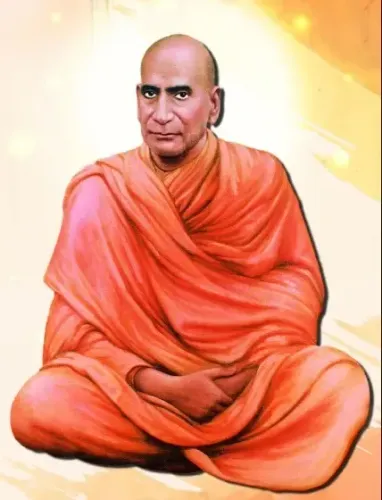J&K: Sajad Lone Critiques BOSE for Excluding Sheikh Noor-Ud-Din Wali from Educational Material

Srinagar, Dec 19, (NationPress) The President of Jammu and Kashmir Peoples Conference (JKPC) and MLA of Handwara, Sajad Lone, has criticized the decision to remove a chapter dedicated to the life of Kashmiri saint Sheikh Noor-Ud-Din Wali from the Class 9 curriculum by the Jammu and Kashmir Board of School Education (BOSE), as stated in a recent JKPC announcement.
Lone described this act as “cultural terrorism” and an “attack on our culture and ethos,” asserting that Sheikh Noor-Ud-Din Wali is respected by all Kashmiris, regardless of their faith, and is regarded with “the utmost respect.”
He highlighted that during these times, which are “tainted by violence, greed, and hatred,” the life of this great saint acts as a “beacon of hope and a model to follow.”
“Our esteemed saint and his virtuous teachings were ingrained in our hearts long before BOSE was established,”
Lone remarked.
He called for introspection and firmly denounced the decision, reiterating that the teachings and legacy of Sheikh Noor-Ud-Din Wali are an integral part of Kashmir's cultural and spiritual identity.
Sheikh Noor-Ud-Din Wali, also known as Nund Rishi, was a renowned Kashmiri Sufi saint, mystic, and poet. He is recognized as one of the founders of the Rishi order in the region. Among Muslims, he is referred to as Sheikh-Ul-Alam (meaning spiritual guide of the world) and Alamdar-e-Kashmir (meaning flag-bearer of Kashmir); whereas among Hindus, he is known as Nund Lal and Sahajananda. His teachings have profoundly influenced many spiritual leaders and saints.
Born in Kulgam in 1377, Noor-ud-Din renounced material life at the age of 30 and chose a path of meditation. The cave where he lived can be found in Qaimoh, a town in southern Kashmir, and is roughly 10 feet deep. The airport in Srinagar is named in his honor.
Noor-ud-Din's messages and teachings are conveyed through poems known as 'shruks'. These poems usually contain four to six lines and focus on themes that emphasize moral values while promoting peace. He advocated for harmony between Hindus and Muslims. It is believed that he passed away in 1438 in Charar-i-Sharief.










